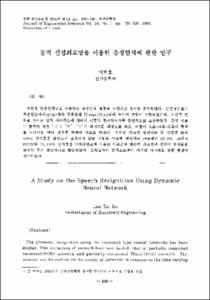Latin America 민영화 연구
- Alternative Title
- Privatization in Latin America
- Abstract
- 이 논문은 브라질과 멕시코의 민영화과정을 분석한다. 두나라에서 국가자본의 성격에 차이가 있음에도 불구하고 국가자본의 형성과 발전은 매우 유사한 과정을 거친다. 1970년대까지 국가자본의 발전은 곧 경제성장을 의미하지만, 80년대 초부터 재정적자의 한계에 직면하여 민영화를 추진하기 시작한다. 1980년대의 소극적인 민영화와 90년대의 적극적인 민영화과정을 분석한 후 그 경제적인 결과를 잠정적으로 도출한다. 대부분의 경제학자들은 민영화를 통하여 정부의 재정적인 건전화는 물론이고 국가에 의한 독점을 폐지함으로써 자율경쟁체제를 도입하고 각종 규제완화를 통하여 기업의 효율성을 제고시킨다고 주장하지만 멕시코와 브라질에서 아직까지 민영화의 가시적인 성과는 나타나지 않는다. 오히려 국가부문의 축소가 시장구조를 더욱 왜곡할 가능성이 있다. 민영화는 국가개입의 기반을 잠식하지만 시민사회의 전통이 미약한 개발도상국에서 새로운 사적 독점의 지배는 성장을 저지하고 분배를 악화하는 요인일 수 있기 때문이다.
This paper analyses the process of privatization in Brazil and Mexico. The Origin and structure of state, capital in two countries is very similar in spite of characters of state enterprises. By 1970s state capital has a leading role in economic development, but fiscal deficit in 80's propelled the privatization in Brazil and Mexico.
The tentative conclusion of analysis is below: Many economists argue that privatization improves the government budget, expands market competition by abolishing state monopoly and deregulation improves the efficiencies of firms. But privatization in those countries has not enjoyed such fruits. By contraries, shrinking state has a probability to distort the market structure more wide because privatization undermines basis of state intervention but newly emerging private momopoly has a negative role in economic growth and distorts distribution in developing countries where the tradition of civil society has been very weak.
This paper analyses the process of privatization in Brazil and Mexico. The Origin and structure of state, capital in two countries is very similar in spite of characters of state enterprises. By 1970s state capital has a leading role in economic development, but fiscal deficit in 80's propelled the privatization in Brazil and Mexico.
The tentative conclusion of analysis is below: Many economists argue that privatization improves the government budget, expands market competition by abolishing state monopoly and deregulation improves the efficiencies of firms. But privatization in those countries has not enjoyed such fruits. By contraries, shrinking state has a probability to distort the market structure more wide because privatization undermines basis of state intervention but newly emerging private momopoly has a negative role in economic growth and distorts distribution in developing countries where the tradition of civil society has been very weak.
- Issued Date
- 1997
- Type
- Research Laboratory
- Alternative Author(s)
- Kim,Seung Seock
- Publisher
- 사회과학논집
- Language
- kor
- Rights
- 울산대학교 저작물은 저작권에 의해 보호받습니다.
- Citation Volume
- 7
- Citation Number
- 2
- Citation Start Page
- 1
- Citation End Page
- 18
- Appears in Collections:
- Research Laboratory > Journal of social science
- 파일 목록
-
-
Download
 000002024081.pdf
기타 데이터 / 392.56 kB / Adobe PDF
000002024081.pdf
기타 데이터 / 392.56 kB / Adobe PDF
-
Items in Repository are protected by copyright, with all rights reserved, unless otherwise indicated.